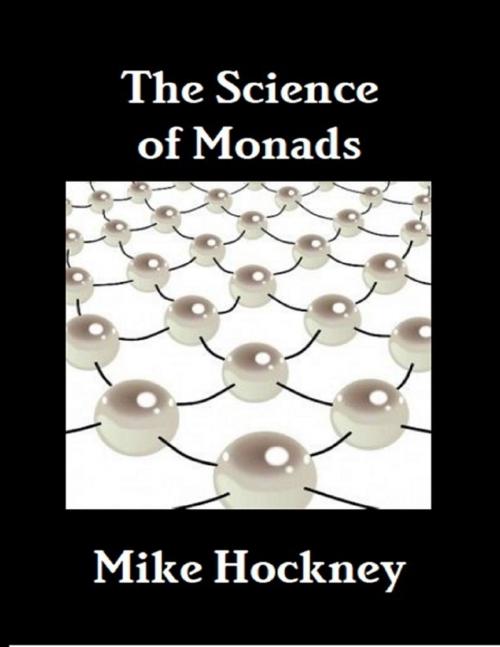| Author: | Mike Hockney | ISBN: | 9781326380403 |
| Publisher: | Lulu.com | Publication: | July 31, 2015 |
| Imprint: | Lulu.com | Language: | English |
| Author: | Mike Hockney |
| ISBN: | 9781326380403 |
| Publisher: | Lulu.com |
| Publication: | July 31, 2015 |
| Imprint: | Lulu.com |
| Language: | English |
Scientific materialism isn’t the only type of science. Leibniz, the great German genius, was a champion of scientific idealism. The atoms in his system weren’t physical, but mental, and he named them monads. A present-day Leibniz might say, “All things are made from mental atoms, which are simple mathematical substances from which all compounds are mathematically derived via the laws of ontological mathematics. Monads are expressed through constant motion, and that mental motion is what we call thinking. Pure thinking takes place in an immaterial, mathematical frequency domain outside space and time. By virtue of Fourier mathematics, frequency functions can be represented in a spacetime domain, and this domain is what is known as the physical world of matter. It is just a certain mode of mental functionality. There is no such thing as scientific matter. There is only mind. A mind is a monad, and monads are all there are. Everything is an expression of monadic, mental mathematics.”
Scientific materialism isn’t the only type of science. Leibniz, the great German genius, was a champion of scientific idealism. The atoms in his system weren’t physical, but mental, and he named them monads. A present-day Leibniz might say, “All things are made from mental atoms, which are simple mathematical substances from which all compounds are mathematically derived via the laws of ontological mathematics. Monads are expressed through constant motion, and that mental motion is what we call thinking. Pure thinking takes place in an immaterial, mathematical frequency domain outside space and time. By virtue of Fourier mathematics, frequency functions can be represented in a spacetime domain, and this domain is what is known as the physical world of matter. It is just a certain mode of mental functionality. There is no such thing as scientific matter. There is only mind. A mind is a monad, and monads are all there are. Everything is an expression of monadic, mental mathematics.”















